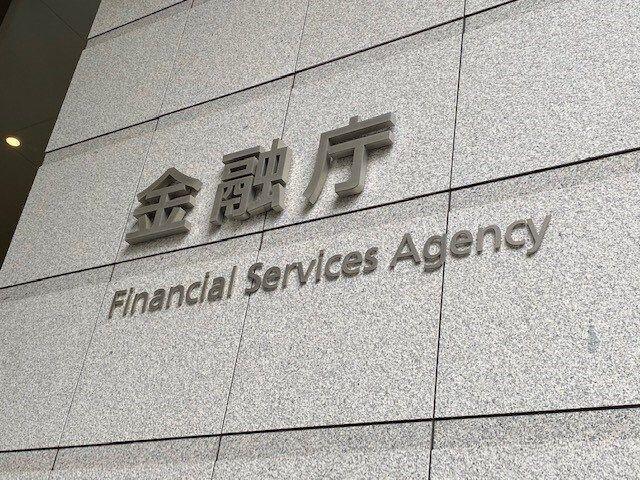"Portable Wi-Fi" Review
25/03/2022

Yuki Nitta
Read in 3 minutes
[Tokyo 18th Reuters] -Companies have a variety of reactions to the review of the quarterly disclosure system of corporate performance that Prime Minister Fumio Kishida has expressed his desire to realize a "new capitalist society". While there are voices hoping that the burden of disclosure work will be reduced, there are also many voices of concern that investors may perceive it as a stepping back in information disclosure. Among those concerned, there is a strong view that most companies will continue to disclose information even if the system is revised.
In his policy speech in October, the prime minister expressed his opinion about the way companies should be, saying, "It is important to conduct management that benefits not only shareholders but also employees and business partners." . Towards a review of quarterly disclosure, he indicated his intention to promote environmental improvement.
Sanae Takaichi, chairman of the Liberal Democratic Party's Policy Research Council, who fought with the prime minister in the presidential election, also agrees that quarterly disclosure encourages a short-term oriented management. Her thesis is that ``If you only think about making a profit in the short term, you cannot invest in human resources and research and development in the long term.''
On the other hand, there are not many companies who believe that the quarterly disclosure system will lead to short-term management. Kenta Kon, Chief Financial Officer (CFO) of Toyota Motor Corp., said, "It's normal for companies to think about 10 or 20 years (in the future) rather than just three months." However, there is a concern that investors will be shortsighted in quarterly disclosure, saying, "It is not a good thing if you misunderstand that the rise and fall of (performance) in three months will also increase or decrease the medium- to long-term corporate value." I showed the idea.
Under the current system, listed companies are obliged to promptly submit both financial statements, which disclose their business performance, and financial statements (securities reports), which include details such as their asset status. As the scale of the company grows, the number of items to be examined and the amount of money to be scrutinized will also be enormous, so the burden of work that comes every three months is not small.
According to Chief Financial Officer (CFO) Yoshihiko Kawamura of Hitachi, Ltd., who attends the financial council and the Ministry of Economy, Trade and Industry's expert panel as a representative of the operating company, the department in charge of the announcement of the second quarter financial results While making final preparations in October, the company is also working toward the announcement of the third quarter financial results scheduled for January of the following year.
While mentioning that disclosure has become voluntary in some parts of Europe, Mr. Kawamura said, ``A (large) company like Hitachi has the resources to disclose quarterly information, but there are many companies that cannot do so. He said, "It is necessary to have a broad-ranging discussion, but considering the situation in Europe, I think Japan will also move in that direction."

Similar to Hitachi, some companies are positive about reviewing disclosure. According to a Reuters survey of companies in November, "If simplification of disclosure is approved, resources can be directed in a different direction." The meaning of commenting on the increase or decrease of the number tends to be lost.” (Precision Equipment).
Quarterly disclosure of financial results was officially enacted in 2008 with the enactment of the Financial Instruments and Exchange Act, following the Tokyo Stock Exchange's voluntary rules established in 1999. .
The pros and cons of quarterly disclosure have been debated for some time. In 2018, the Financial Services Council of the Financial Services Agency considered the revision, but said, "If voluntary, it could be perceived as a regression in disclosure, which could affect the competitiveness of Japan's capital market." There is a reason why it did not come.
Three years have passed since that conclusion, and although a new perspective that overturns the discussion at that time has not emerged, the birth of the Kishida administration, which advocates a review of the disclosure system, is about to change the situation.
Ryo Kiyota, CEO of Japan Exchange Group (JPX), said at a press conference in October that most listed companies will continue to disclose information even if the quarterly disclosure system is abolished. Indicated. “For a company in which global investors hold shares, we will not alienate shareholders by cutting back on information ourselves,” he said. In fact, the majority of companies in the UK and France continue to voluntarily make quarterly disclosures even after the mandatory abolition.
On the other hand, regarding the point that there are many overlapping points in the contents of the financial statements and the financial statements (securities reports), he indicated his recognition that discussions should be held to resolve them.
An official of the Financial Services Agency points out that it is important not to give the impression that corporate information disclosure has declined due to the enhancement of timely disclosure, even if the quarterly disclosure is revised.
There are opinions from market participants that information should be disclosed continuously. Hidehiro Fujiwara, senior investment officer at Sumitomo Mitsui DS Asset Management, believes that there is no need to standardize disclosure formats and other matters across the company, but what is important is how close communication can be done between companies and investors. "To that end, companies should continue to do so without considering disclosure as a burden," he said.
One person involved in the financial sector said, ``Since current figures are the only point of view for loan projects, considering projects without disclosure will actually raise the hurdle.''
Our Code of Conduct: Thomson Reuters Principles of Trust